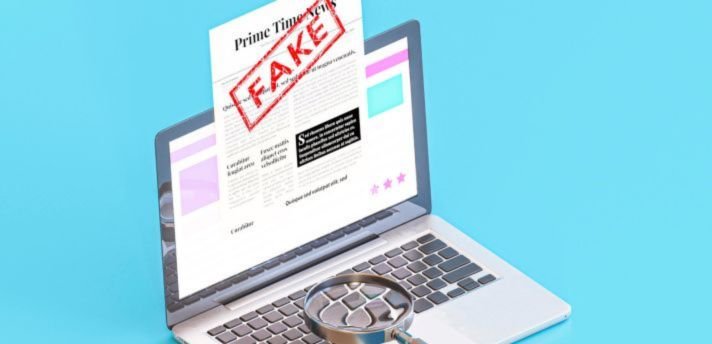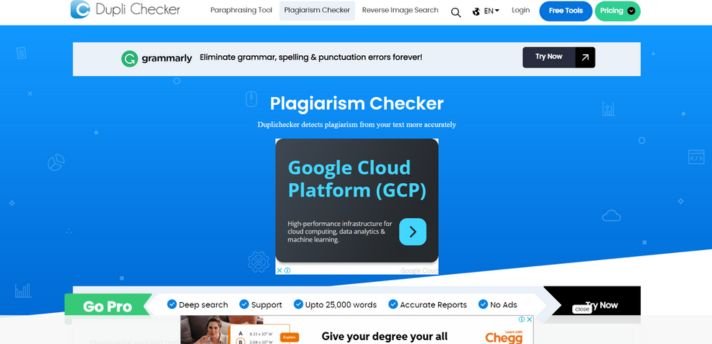


Submitting plagiarized theses, dissertations, or research papers can derail academic careers. That's why graduate students need rigorous plagiarism checkers tailored for academic works.
This guide covers the top free tools to detect copying in papers and theses before submission.
In academic settings, plagiarism allegations can have severe consequences beyond just scoring poorly on an assignment. For graduate students, plagiarized dissertations and papers can lead to:
With such high stakes, graduate students must ensure their capstone projects and publishable work are completely original before submitting them. Robust plagiarism checkers tailored for academic writing provide that protection.
Not all plagiarism tools are equipped to thoroughly vet scholarly documents like theses and research papers. Here are key features academic checkers need:
Next, we’ll cover some of the best free plagiarism checkers meeting these criteria for graduate student papers.

SEOToolsPark's academic plagiarism checker offers tailored scanning for research papers and theses. It checks against over 45 billion web pages, 130 million published works, and internal academic databases.
The free version permits scans of up to 1500 words. Unlimited checks of longer documents are available through paid plans. The bulk upload and PDF support allow checking completed manuscripts.
SEOToolsPark also provides detailed similarity reports highlighting problem areas. Students get originality and readability scores to assess paper quality.

PlagScan offers a free trial of its paid academic plagiarism checker supporting 1500 words per scan. It searches academic catalogs, journals, and publications along with major search engines.
The tool identifies duplicate text passages and generates a similarity report. PlagScan integrates with Google Drive for simple manuscript uploads. Students control settings like ignoring quotes and citations.
While designed for institutions, graduate students can benefit from the free trial for checking papers and thesis drafts. Just be sure to cancel ahead if not wanting to subscribe post-trial.

DupliChecker has a basic free plagiarism scanner allowing 5000 words per scan. While not as robust as paid services, it sufficiently checks papers against its catalog of student submissions, abstracts, and publications to catch blatant copying.
It highlights duplicated text and provides the overall percentage of unique content. Students can then determine if that percentage seems reasonable for a properly cited paper.
DupliChecker lacks detailed similarity reports. But its free version remains useful for initial thesis/dissertation checks before investing in deeper scans.
This free web-based checker allows 1500 words per scan, supporting English and Ukrainian languages. It searches major academic databases along with general web pages.
The tool highlights duplicated passages and link them to the online source. Results can be emailed for review alongside manuscript drafts during revision.
For longer works like thesis, SmallSeoTools has affordable paid plans starting under $5 monthly. But its free scanner sufficiently covers standard academic papers.
Viper offers a free web-based plagiarism scanner with no word limit. It checks against its catalog of over 1 billion online documents.
However, Viper does not scan against journal articles and scholarly databases by default. Students would need to purchase its Academic Plagiarism Check adding that access.
Still, even scanning general online sources helps uncover missing citations for less formally published content like websites. Its unlimited word length makes it flexible for longer works.
Before submission, graduate students should manually verify academic integrity using these methods:
The thorough human analysis complements automated scanners. Used together, these strategies help graduate students confidently stand behind their work as original and ethically sourced.
Even without intending to plagiarize, busy graduate students risk copying errors like:
With the right tools and habits, students can confidently submit wholly original work reflecting their own ideas and ethics.
While all programs require rigorous plagiarism avoidance, specific tools suit different disciplines’ needs:
Students should research the best checker for their field’s common sources. But comprehensive tools like Quetext provide adequate cross-disciplinary coverage.
After plagiarism scans, graduate students should manually verify their work using this checklist:
Ph.D. candidates especially must prove their work offers a new scholarly contribution free of plagiarism. Using scanners and checklists together ensures that novelty holds up to scrutiny.
Free checkers have limited detection compared to paid services. But they sufficiently uncover blatant, word-for-word plagiarism from major online sources in standard academic papers. Thesis and dissertation writers should utilize robust paid checkers accessing journal databases.
Acceptable percentages depend on factors like paper length and needed citations. Typically 10-15% similarity is expected to account for properly attributed quotes, methods descriptions, and similar phrasing when discussing related research. Graduate students should consult supervisors on acceptable thresholds for their work.
Yes, leading academic journals use advanced plagiarism scanners on all submissions. Some like IEEE even disclose similarity scores to authors. So students must preemptively check papers to avoid rejection and reputational damage from accepting plagiarized work.
Simple synonym swapping does not trick most modern detectors. They analyze writing style, sentence structure, and context rather than matching keywords. Paraphrased content must be thoroughly rewritten in one's own style. But checkers help catch any remaining similarities.
Using uncredited images, graphs, illustrations, or data in a paper constitutes plagiarism even without copied text. All visuals should be properly attributed to the source material or noted as original work. Plagiarism checkers like Quetext even scan figure captions for duplication.
Plagiarism can sabotage graduate academic careers if found in theses, dissertations, or published works. Robust plagiarism scanners tailored to academic writing along with diligent manual verification offer students protection.
Tools like SEOToolsPark combined with strong research and attribution skills empower students to put forth wholly original work advancing their field.